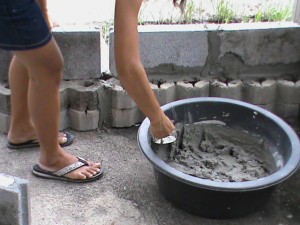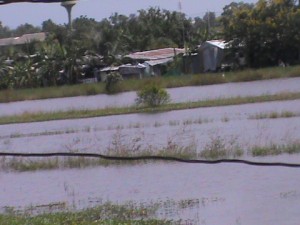The Burmese diaspora is spreading.
These days when I contact my Karen friends via Skype, wondering why I haven’t seen them for a while and looking to catch up, I might find they now live in Norway, the United States, Sweden, or Australia.
Once they lived in refugee camps along the Thai-Burma border.
Mostly the reason I knew these people was because they were involved in the Karen people’s resistance against Burma’s ruling military junta, the State Peace and Development Council.
And that is why their resettlement to a third country was fast-tracked.
Many of the most talented, multi-lingual and well-contacted figures in the Karen resistance movement that were once registered in the camps have been shunted off abroad.
Thailand doesn’t want any refugee camps to exist along the border any more, the ruling military junta wants all but the “troublemakers” back as a cheap labour pool, and international agencies are shipping people out as fast as they can.
First those “lucky” enough to be selected for resettlement, the process begins with a forced stay in an abandoned factory on the outskirts of Mae Sot for days on end.
There they have nothing to do except lie on plastic mats and become increasingly nervous about what is before them.
There is not a lot of food and when comes it is dished out communally to line-ups.
Then the refugees are tested and re-tested for communicable diseases.
Finally they are loaded into the backs of trucks and driven to the airport and sent away to “start a new life”.
And so ends the hope of simply returning home to a peaceful country.
In most countries a government helps build the human resources of a nation by constructing schools, providing healthcare and the basic amenities that foster human development.
Today in Burma, the government and its army is employing a scorched-earth policy against much of the population.
The army is intent on destroying the basic amenities of life that the people have built themselves, with no help from anyone else.
From materials cut and dragged from the jungle they have built schools, clinics, community centres and places of worship, be they Buddhist temples, Muslim Mosques or Christian Churches.
And their own supposed government is systematically destroying them, dispersing the people and stealing their food and livestock.
In Burma, the world’s longest war still rages on, and it is ruining millions of lives and has killed hundreds of thousands of people.
It is a war fuelled by greed and - have no doubt - it is all about the money.
Many of this conflict’s casualties are strung out along the Thai-Burma border and are the most visible and accessible manifestation of what is happening inside Burma.
In camps bounded by bamboo fences and barbed wire, guarded by men with guns, a remnant population huddles, watching the world go by.
They are not allowed to leave the camp and they are not allowed to work.
The men with the guns stationed at the gates and along the fences are not there to protect the people - the Thai government refuses to provide security for the camps – they are there to keep people out.
The Thai authorities along the border don’t want publicity, because then more people with cameras will come along and everything could get out of hand.
As it is now they have the UN and international agencies, bar but a few, adequately tamed.
Once upon a time this conflict was marked by annual dry season offensives, soldiers making war when it was easiest to move through a tough terrain.
But that is no longer the case.
In 1984 the Burma Army established base camps in the border areas, declared them free-fire zones and continued their offensives against the local population throughout the wet season.
In 1984 there were 10,000 refugees
By 1994 there were 80,000 refugees
In 1997 that number had increased to 115,000
Since then numbers have remained static at about 150,000
Despite the resettlement programme overseen largely by UNHCR and the International Organisation for Migration, the numbers remain fairly static because the people keep coming.
These figures are not truly representative of the displacement of Burma’s people.
For instance when I first began working on the first draft of ‘Secret Genocide’, in May 2008, the Bangkok Post reported that between January and April of that year, 80,000 people had walked across the Thai-Burma Friendship Bridge in Mae Sot and simply disappeared.
There are millions of Burmese working illegally in Thailand.
They are locked down in homes working as maids, locked down in restaurants working as dishwashers, locked down in brothels working as prostitutes.
More than 80 per cent of the population of the refugee camps is Karen – they are directly fleeing fighting.
The Karen people have it particularly bad, with cabinets around the world bursting at the seams with details of human rights abuses, abuses that occur on a near-daily basis.
Other people living in the camps are mainly economic migrants, fleeing an economy ruined by mismanagement and greed.
Burma’s banking system is available only to the elite and its property laws are nothing short of criminal.
Burma’s military rulers are signing deals to sell the country’s natural resources, predominantly to Thailand, China and, of late, India.
They are locking the country into 30-year contracts, effectively robbing any future administration of much-needed income to rebuild the nation.
The role of geopolitics in the Karens’ plight cannot be underestimated.
The 10 countries of the Association of Southeast Asian Nations, China and India combined constitute more than half the world’s population.
Burma’s military rulers are a full member of ASEAN and occupy a seat at the United Nations, just as the Khmer Rouge did throughout and beyond their slaughter of millions of Cambodians.
The fact the West bleats about China ‘propping up’ the ironically named State Peace and Development Council makes clear its ignorance of the true situation.
China is vigorously pursuing its two oceans policy.
At the moment it is constructing a pipeline from the Andaman Sea and a deep water port at Tavoy, or Daiwei in Burmese newspeak, which will feed directly into its southern province of Yunnan.
Eventually this pipeline is to be flanked by a super highway and a high-speed rail link.
This massive transport corridor will split Burma in two.
It will also slice 10 days off shipping times to get Middle East oil to China’s southern industrial powerhouse.
The Strait of Malacca will no longer be a shipping thoroughfare to China.
It is a distinct possibility Singapore Crude may be finished as a benchmark of global oil prices.
The way the world does business will be changed forever.
In Burma’s north, on the Chindwin River, India plans two massive hydropower dams that will create more electricity than Burma is currently capable of producing.
High-voltage power lines will carry the power directly into India and Burma’s people will receive nothing.
The generals will receive cold, hard cash for selling off the resource.
Along the untamed Salween River, considered one of world’s most biologically-diverse temperate ecosystems, Thailand is rubbing it hands together at the prospect of a cascade of dams that will fuel industrial development in its north.
None of these countries really care for the State Peace and Development Council.
China, particularly, is pragmatic when it comes to business.
At the moment it is convenient to do business with the small clique of generals controlling Burma.
But if they were gone tomorrow, China’s project would still proceed - it would simply negotiate to get what it wanted with whoever held power.
And whoever held power would still negotiate to enable that pipeline to be built.
Burma’s people want economic development, but they want a share of it.
At the moment the ruling military elite soaks up everything, so there is nothing left for the people.
Should they wrest power from the military, the democratic forces are not going to reject proposals that benefit their country.
But they would certainly seek to use the revenue to develop schools, hospitals and roads, rather than further bolster the armed forces or build a nuclear bomb.
For more than a decade I have gathered testimonies and spoken with people involved in this war.
If you consider the legal definition of genocide, I don’t think there’s any question that what we are witnessing in Burma today is a modern genocide.
Genocide was defined by our forefathers in the aftermath of World War II, in a bid to make atrocities punishable.
Their work was a direct bid to make life easier for us and to offer up what they had learned from a distinctly horrifying chapter of history.
How can we turn our backs on the lessons our forefathers chose to share with us – lessons that were learned through tortured experience?
If we don’t consider what has happened in the past, how can we build a better future?
We can’t rely on the international community per se, this is our society, it is up to each and every one of us to ask not ‘What can I do, but rather what am I going to do?’
















